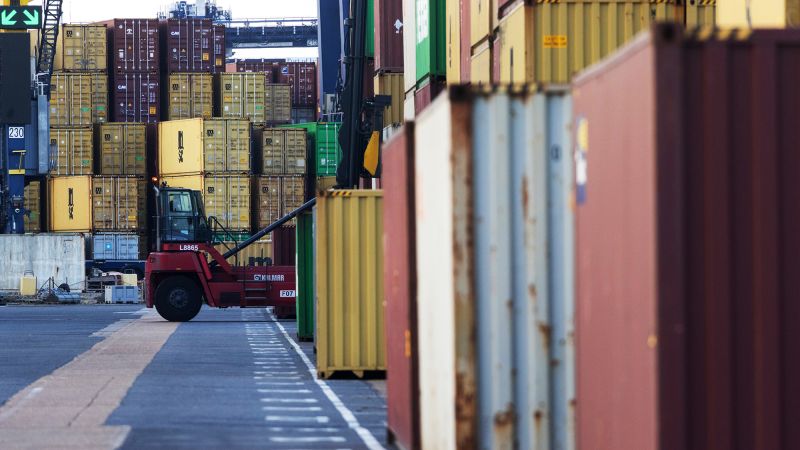London
CNN
—
Businesses in Germany and Britain produced less this month amid worries about President Donald Trump’s near-universal tariffs, in another sign that the global damage from his import levies is adding up.
Closely watched surveys of purchasing managers showed Wednesday that private sector output contracted in Germany, Europe’s biggest economy, and the United Kingdom.
“Tariff concerns and uncertainty weighed on business confidence and demand,” S&P Global and Hamburg Commercial Bank, which publish the survey of German companies, said in a news release.
Likewise, in the UK, “survey respondents widely commented on the negative impact of US tariffs and a subsequent slump in confidence among clients,” S&P Global said.
The first reading of Germany’s Purchasing Managers’ Index, which tracks activity in the manufacturing and service sectors, came in at 49.7, from 51.3 in March. A reading below 50 indicates a contraction.
The downturn is probably the result of multiple forces, said economists at Berenberg, a bank.
“Beyond international headwinds such as the tariff-related uncertainty, this likely also reflects the broad-based domestic economic weakness,” they wrote in a note.
Early data already points to a slump in global trade in the face of Trump’s import taxes. South Korea’s Customs Service reported that exports for the first 20 days of April declined 5.2% compared with the same period last year. That singular data point is a “key bellwether” for where trade is heading, Min Joo Kang, a senior economist at ING, said in a note Monday.
On Tuesday, the International Monetary Fund downgraded its economic growth forecasts for numerous countries, including the United States, Germany and the UK, and joined a chorus of warnings from economists and business leaders about economic damage from US tariffs. The Washington, DC-based institution said Trump’s unpredictable tariff policy and countermeasures by America’s trading partners will likely deal a heavy blow to economies worldwide.
Survey data for the UK bore out that gloomy view. The country’s PMI reading came in at 48.2 this month, the lowest since November 2022.
“There is no doubt that the chilling effect of the US president’s tariffs has slowed UK growth,” said Rob Wood, chief UK economist at Pantheon Macroeconomics, a research firm, although he added that he doesn’t see a recession.
The broader eurozone economy, which includes Germany but not Britain, has held up better, according to the survey for the region. The PMI reading for the 20 countries that use the euro stood at 50.1 this month, indicating broadly flat output.
However, that was the lowest number in four months and new orders fell at the fastest pace so far in 2025.
Data for the surveys was collected between April 9-22.

